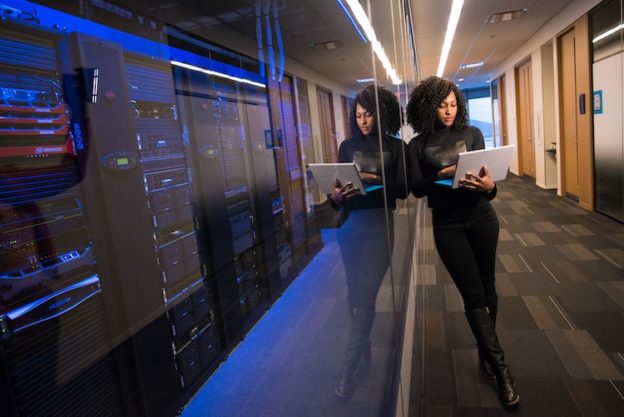Odds are, you’re already aware that technology is a surging industry. According to Indeed and the Bureau of Labor Statistics, the number of computer science jobs will increase by 15% by 2029. That’s a considerable growth rate, and it highlights the variety of available job openings in the tech space.
As promising as the data sounds, though, fewer than 30% of available tech jobs will go to women. That’s shocking, considering that there are 7 million more women than men in the United States, where tech jobs are most prevalent. In spite of that fact, only 18% of female students will graduate with a computer science degree.
Why is this? Why is there such a glaring disparity between men and women in one of the fastest-growing industries on the planet?
One major reason might be a decided lack of guided opportunity. So, with that in mind, let’s discuss mentorship and how it can play a substantial role in expanding the representation of women in the digital workforce.
What is Mentorship?
In a nutshell, a mentor is someone who has knowledge and skills to share with those in need of guidance. This can be a symbiotic relationship in many ways. The mentee gets invaluable inside knowledge, while the act of inspiring the next generation of talent can lead to greater success and happiness for the mentor. This also benefits the industry at large.
That is not to say that it must be a complex process. Mentorship doesn’t always have to be a “sensei/disciple”-style relationship. Sometimes, mentorship is as simple as showing a new hire around the office or imparting the best way to access company software. The point is, mentorship should be a driving standard for every business to aspire to that can build confidence and encourage advancement.
A strong mentorship environment can help:
- Improve learning
- Foster goals
- Develop leadership opportunities
- Provide valuable career insight
- Improve communication between management and staff
- Bridge gender and wage gaps
And, on that note, let’s discuss the elephant in the room: fostering diversity.
Why Gender Parity in Tech is so Important
We’ve already outlined the statistics about women in tech. The numbers are a bit embarrassing for a global industry like ours. When women comprise half of the available workforce, there really shouldn’t be such a large imbalance between genders, especially in the 21st Century.
So, why do female students veer away from degrees in IT or computer science? For that matter, when they do choose a career in tech, why do they feel overlooked for advancement or other leadership opportunities? The answer is uncomfortable, but evident: there is not enough employer outreach and mentorship for women in tech.
Students naturally gravitate toward industries in which they feel they will best succeed. If tech companies and startups focused more on diversity in their recruitment processes and made it clear that women are a welcome inclusion, the gender gap might decrease significantly.
Inclusion is not rocket science. However, tech seems to suffer a severe case of gender bias, regardless of many companies’ stated ethics. According to Business Insider, women advance less, as they are often overlooked for promotions that have been typically dominated by men. There are many explanations for this phenomena, but none are acceptable in today’s increasingly diverse landscape.
Despite the negative connotations of terms like ‘affinity bias’, it has never been more important to overcome these challenges than now. The country is growing more diverse, and more and more women and minorities are entering the workforce each year. Companies that aren’t providing mentorship and guidance to students and young professionals are doing themselves a great disservice.
To take mentorship a step further, it can be beneficial to implement the ideology company-wide. Businesses that prioritize positive feedback and guidance recruit and retain more staff and are often rated higher by employees and related agencies.
Supporting Mentorship in Tech
To bring this point home, mentorship can help businesses recruit the very best talent and vastly improve a company’s overall profile. Talent tends to follow opportunity and inclusion, and businesses that take this ethic seriously tend to stand out.
I am an active proponent of mentorship and gender parity in tech. For instance, I helped launch the LIFT: Elevating Women in Fintech initiative earlier this year. I believe this is important work because, not only will it benefit my own company, it will also pay dividends for the fintech space as a whole.
I encourage anyone with skills or experience to share to offer their insights to help build up the next generation. Offering a hand-up is the best way to ensure a dynamic, innovative future for the tech space.








